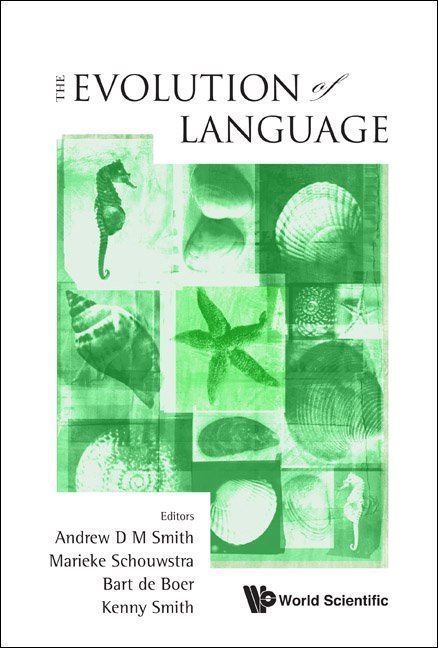BALANCING ARBITRARINESS AND SYSTEMATICITY IN LANGUAGE EVOLUTION
In 1866, the Société de Linguistique of Paris met to issue a moratorium on papers concerning language evolution. Less well known is that the same meeting also prohibited papers discussing universal languages. These universal language studies were speculative attempts to rediscover the pre-Babel tongue, and several proposed that the arbitrariness of the mapping between the spoken form and the meaning of words was an indication of imperfection in human communication. If one could describe a perfectly systematic language in terms of form-meaning mappings then one could rediscover the universal language (see Eco, 1995, for a review). This ideology led to artificially constructed languages such as Wilkins' "Analytical Language" (1668), in which similar concepts had orthographically similar referents. However, systematicity results in confusions because similar sounding words are being used in similar contexts, with survival: "edible plants could be confused with poisonous ones, and animals that attack be confused with benign ones" (Corballis, 2002, p. 186).
We contend, instead, that the cultural evolution of language has resulted in a crucial balance between arbitrariness and systematicity (see also Tamariz, 2008). Though arbitrariness may be advantageous for individuating referents, it impairs recognition of similarities among words. Indeed, form-syntactic category mappings demonstrate a high degree of systematicity in natural language (Monaghan et al., 2007). In a series of computational simulations and experiments we tested the extent to which arbitrariness benefits individuation and systematicity benefits categorization in a language learning task.
In two simulations, we trained a feedforward connectionist model to learn mappings between form and meaning representations for 12 words referring to 6 actions and 6 objects. The representations were either correlated (systematic) or uncorrelated (arbitrary). The second simulation had additional contextual information as a part of the model's input by indicating whether the word was an action or an object, more realistically representing the multiple contextual cues available in the language learner's environment. In two experiments, we trained undergraduate participants on the same 12 words and pictures of actions and objects, either with or without contextual information in the form of distinct words preceding either the object or the action word. We tested performance at four points in training in terms of learning to: (1) individuate the meanings of the words and (2) categorise the words into objects or actions.
Without context, for both the simulation and the experiment, there was a systematic advantage for individuation and categorisation. Learners exploited the generalizations in the systematic relationships. With context, for the categorization task there was a systematic advantage for both the simulation and the experiment. However, for individuation, there was a significant interaction between training time and systematic/arbitrary condition – an initial systematic advantage became an arbitrary advantage later in training.
Our studies illustrate the importance of both arbitrariness and systematicity, and indicate how each contributes to learning different aspects of language, interacting in complex ways with contextual information in the environment. We suggest that because word-learning involves not only discovering its form-meaning mapping but also how to use it in syntactic contexts, language has evolved to balance arbitrariness and systematicity.
Note from Publisher: This article contains the abstract and references.



